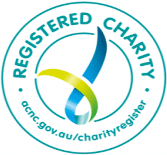What can I do?
Make a complaint to the relevant hospital/clinic
All hospitals and clinics must comply with federal and relevant state or territory anti-discrimination acts. In addition, many hospitals or clinics have their own rules and policies in place to deal with racial discrimination as well as complaint mechanisms to report breaches of such rules and policies. These documents might be available on the hospital’s or clinic’s website or upon request to staff members. For health facilities that do not have such policies or complaint mechanisms in place, you should ask to speak with the management or customer services team and explain that you wish to make a complaint. Most supervisory bodies will request that you make a complaint directly to the service provider before lodging a complaint with them.
Make a complaint to a supervisory body
There are several bodies in Australia that oversee the work of different health care facilities. If you suffered racial discrimination in a health care facility, you might be able to lodge a complaint to one of the following bodies.
Federal bodies
- The Department of Health will receive complaints about most issues related to health care in Australia. You can make a complaint to them here.
- For incidents involving aged care services, you can lodge a complaint to the Aged Care Complaints Commissioner here.
State/Territory bodies
- ACT: If you wish to make a complaint against any health service provider in the ACT, you can do it via the ACT Human Rights Commission here.
- NSW: If you wish to make a complaint against any health service provider in NSW, you can do it via the Health Care Complaints Commission here.
- NT: If you wish to make a complaint against a health care or community service provider in NT, you can do it via the Health and Community Services Complaint Commission here.
- SA: If you wish to make a complaint against a health care or community service provider in SA, you can do it via the Health and Community Services Complaints Commissioner here.
- TAS: If you wish to make a complaint against a health care or community service provider in TAS, you can do it via the Health Complaints Commissioner here.
- VIC: If you wish to make a complaint against a health care or community service provider in VIC, you can do it via the Health Complaints Commissioner here.
- WA: If you wish to make a complaint against a health care or community service provider in WA, you can do it via the Health and Disability Services Complaints Office here.
Take your case to a federal or state court
Any matter related to racism can be reported to the Australian Human Rights Commission (AHRC) or other state anti-discrimination bodies. You can click here for more information about how to make a complaint to the AHCR or to a state body.
After you have done that, in some cases it might be possible for you to take your case to court. As court procedures can be complicated and vary greatly from state to state, we recommend that if you wish to seek redress through the court system, you first seek advice from your nearest Community Legal Centre and/or Legal Aid to get further assistance on how and to whom you should make a complaint.
Before making the decision to start a court procedure, it is important to keep in mind that these procedures can be quite costly and lengthy. If this does not seem to be the best option for you, there are alternative dispute resolution methods available at anytime.
Go to the police
In some cases, a racially discriminatory act will constitute a crime and can be reported to the police. Which acts constitute a crime will vary depending on the state or territory you are in. If you wish to go to the police, we advise that you consult with a lawyer or your local police station first.
Make a complaint to the Islamophobia Register
In addition to the above legal and institutional reporting options, if the incident was Islamophobic you might also consider sending a complaint to the Islamophobia Register. Making a report to the Islamophobia Register ensures that incidents of Islamophobia and Anti-Muslim sentiments are securely recorded and analysed to build a body of knowledge about Islamophobia in Australia.
Research
Everyone in Australia has a right to health, which should be guaranteed to all without discrimination. Nevertheless, the provision of health care services is an important area of life yet it is one in which people in Australia suffer racial discrimination. Access to health care services is especially difficult for Australian Indigenous peoples. Following her visit to Australia from 20 March to 3 April 2017, the Special Rapporteur on the rights of Indigenous peoples (SRIPeoples) published a report in which she noted that “Social and cultural determinants explain almost one third of the health gap between indigenous and non-indigenous people. In 2015, nearly 45 per cent of indigenous peoples reported having a disability or long-term health condition. Understanding the impacts of intergenerational trauma and racism are essential factors in order to address the health situation of indigenous peoples effectively.“
The Australian Indigenous Doctors’ Association (AIDA) in its 2016 policy paper Racism in Australia’s health system says that “Systemic racism in the health system directly influences Indigenous Australians’ quality of and access to healthcare. (…) Furthermore, past experiences of racism in the health system contribute to Aboriginal and Torres Strait Islander people avoiding those situations and settings for fear of repeated exposure to racism, additionally impacting their access to health care.”


